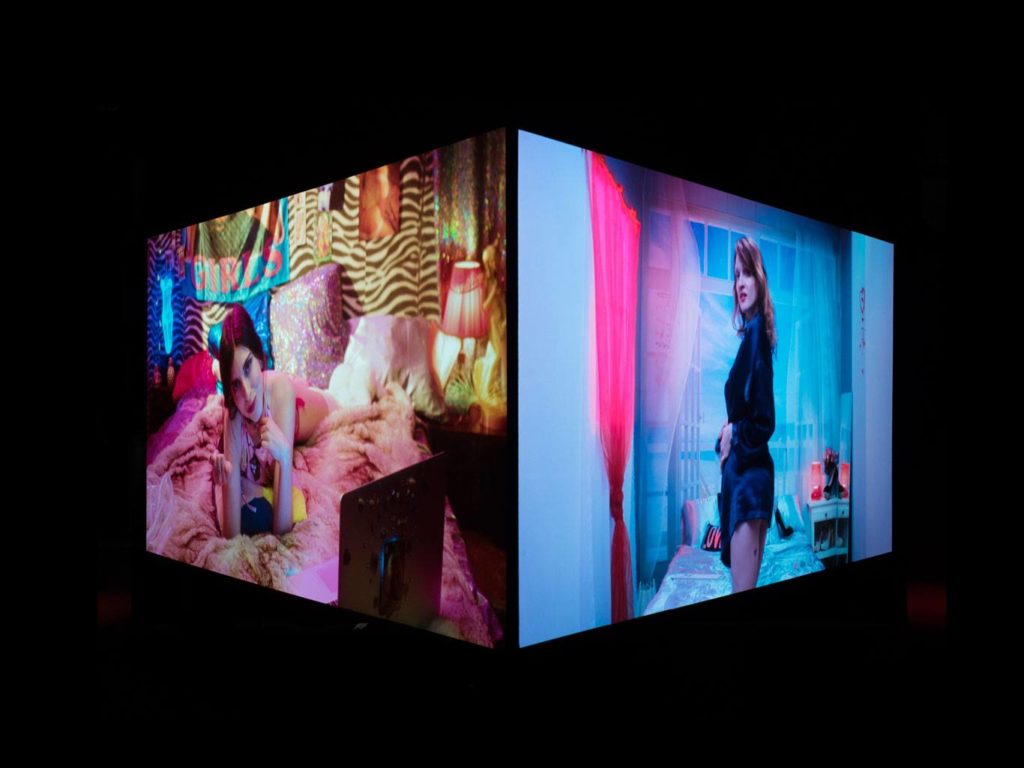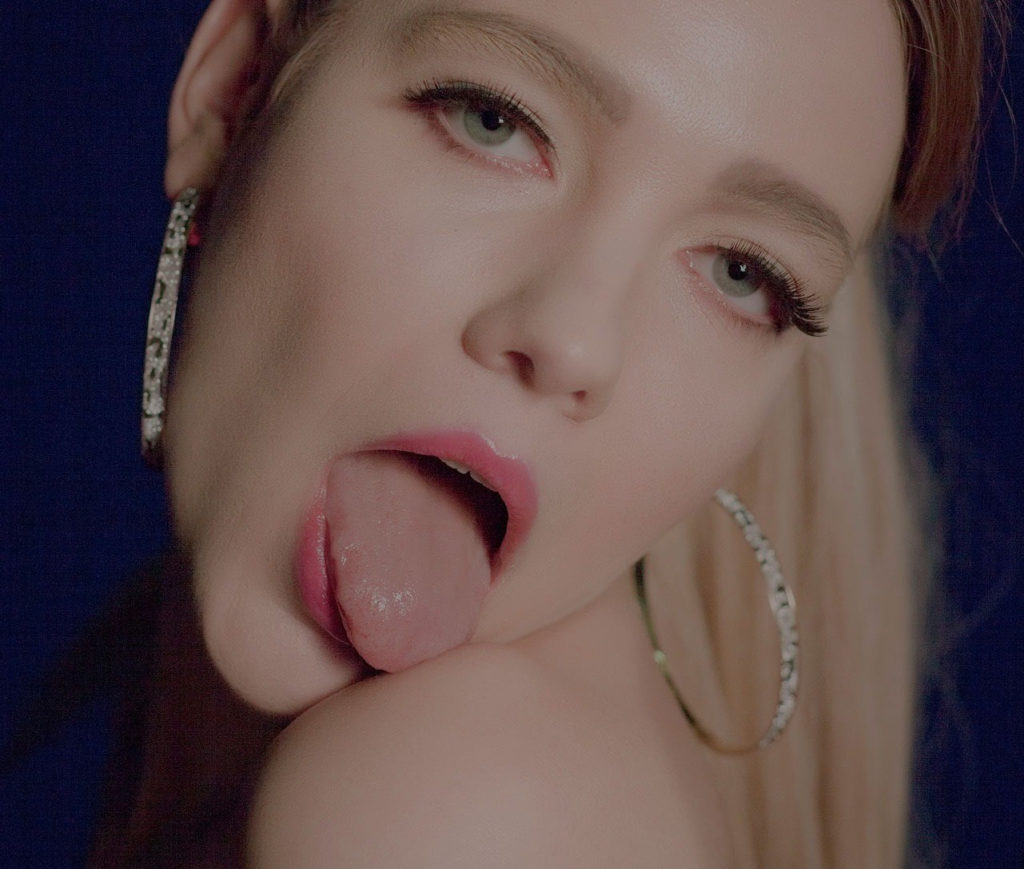Marilou Poncin, advocacy for vulgarity
Marilou Poncin attacks fantasies: sexual of some, subject to the prejudices of many others. From cam girls to love dolls and bimbo, she explores these semi-factice female figures, shaped by the desires of a phallocrat and macho society, without denying their right to exist for themselves and by themselves.
Each of her works examines with humour and tenderness the devices of fiction that cross our collective and individual imaginations, and evokes the interactions that result from them, fruits of a sensitive and emotional research. Revealing the relationship of their creator/user to the world, these fantasies are mostly virtual, allowed by the technological advances of the last twenty years. The bodies of the Woman, staged, chained to the stereotypes of femininity, are finally emancipating themselves in the virtual worlds that Marilou Poncin recreates and explores: a young cam girl tells us about her daily life and her choices, rationally, lightly, rightfully (Cam Girl Next Door); the artist, now Marilove, shakes to the rhythm of Britney Spears’ sweet voice as we contemplate an enhanced reality (Let Out the Inner Bitch). Here the vocabularies of pop culture and kitsch eroticism incriminate both the imagery and the clichés with which we, young people born in the 1990s, have grown up. Today, these models seem to be moving: faced with the Internet, the definitions of Femininity and Sexuality now embrace, more or less openly, a variety of codes and possibilities. Fantasies are proliferating, as are many virtual or tangible worlds that can be explored. Despite their multiplicity and variety, only heteronormed and Western-centred fantasies, with all their racism and machismo, still seem to have their place.

Acknowledging this, the artist embraces a new world, accompanied by a new materiality: the love dolls. Very real and realistic, the purpose of these dolls with softer skin than your softest girlfriend, is no longer limited to penetration and male pleasure. As a true emotional substitute, the love doll – whose presence is still little publicised in Europe – accompanies a large number of men and women in Japan. By focusing on this tangible fantasy, Marilou Poncin makes a turning point in her work: if her subjects remain the receptacle of affects and projections, their materiality now anchors them in reality while their finality places them in the field of emotion. Thus, each of the phantasmagorical worlds that the artist explores reveals our individual and collective relationships with the societies in which we live, between tastes, desires, lacks and prejudices.

All these avatars are theoretically the projections of a single, standardized, assigned and sexualized female identity; yet, between the artist’s camera-hands, they find their own existence, a sublime singularity, which reminds us of the true meaning of feminism: to leave each woman free to dispose of her body as she sees fit, accepting not to have the privilege of absolute truth in terms of morals, appearances and beliefs, and this without moral judgments. I agree that this is not an easy task: without attempting to analyse the feminist movements and their history here, it must be acknowledged that, all too often, we are now facing a classist and not so much decolonised feminism. Vulgarity is one of these notions with a strong pejorative connotation that is often overlooked because fundamentally built on socio-economic prejudices: those of a dominant class with the economic, political and cultural means to define what good taste is. Defining is controlling. It is about establishing what is the norm and what is the margin, what is appropriate and what is not. So, today, lets agree to redefine vulgarity and to get rid of its negative connotations, in order to be able to fully own our bodies.
By giving a voice to these imaginary but tangible women, by making them not the subject but the actresses of her works, Marilou Poncin produces a political and feminist work, rehabilitating without mimicking aesthetic and social codes which, if they are not those of the bourgeoisie, are as entitled as any other.

https://marilouponcin.com
https://vimeo.com/
Marilou Poncin's work is presented from June 21st to July 7th within the collective exhibition Futures of Love, in magasins généraux, Pantin : https://magasinsgeneraux.com/fr/saisons/futures-of-love
Bourdieu Pierre, La Distinction, 1979.
Haddouk Sébastien, Cagole Forever, Canal + Production, 2017, 52’.
Mamouni Lucie, « Lisa Bouteldja : reine de “la Beurettocratie », modzik, juin 2018.
Risselet Edouard, « Être chic est-il devenu vulgaire? », Magazine Antidote : Borders, été 2017.
Exhibition The Vulgar: Fashion Redefined, Barbican Center London, 13/10/2016 – 5/02/2017.






